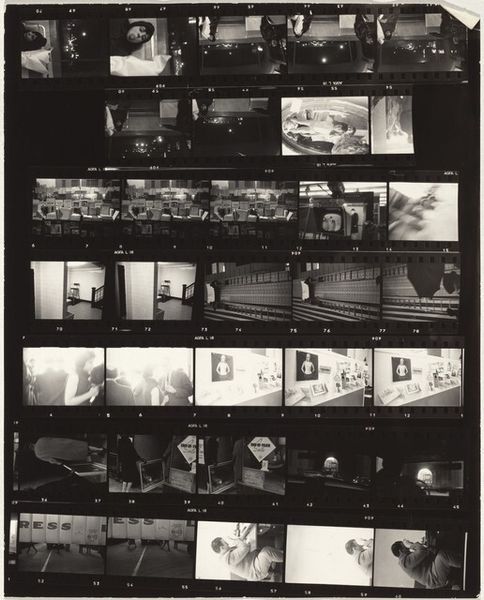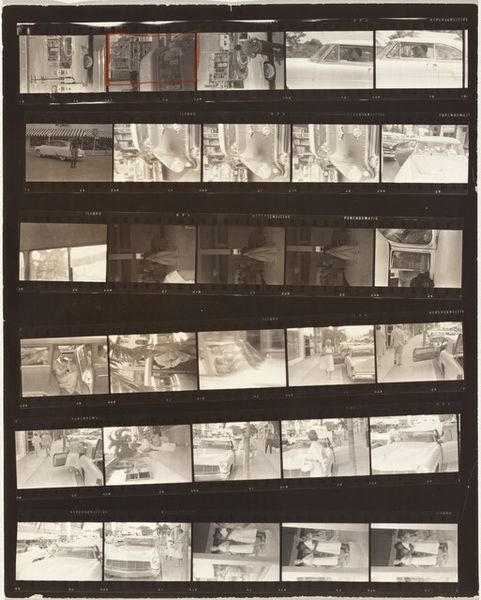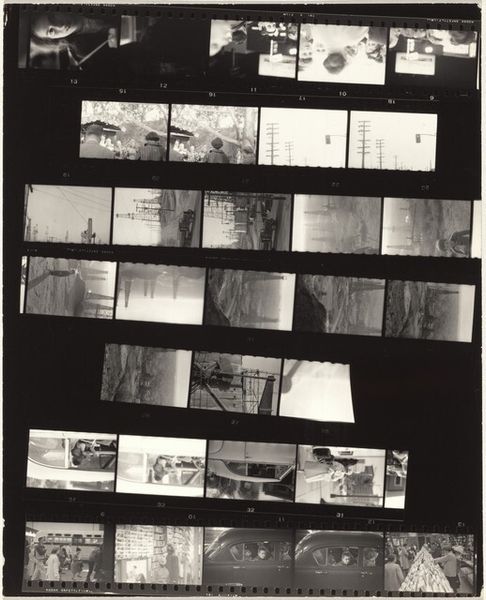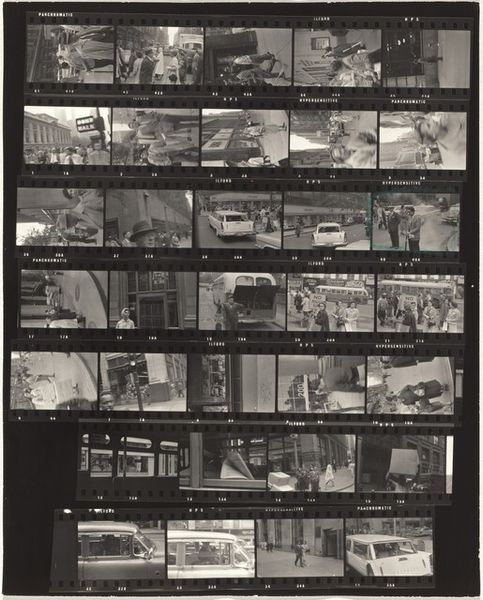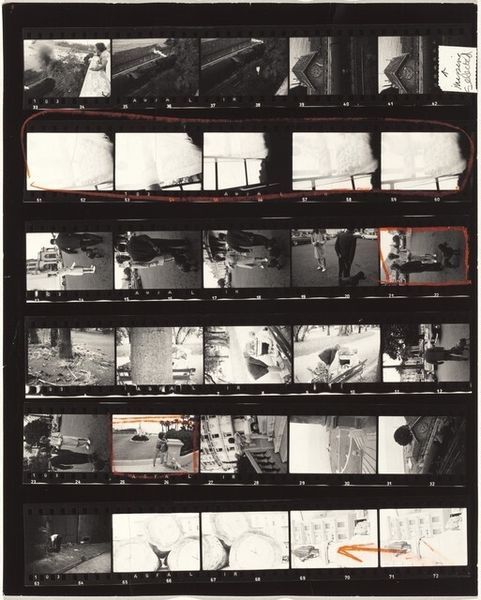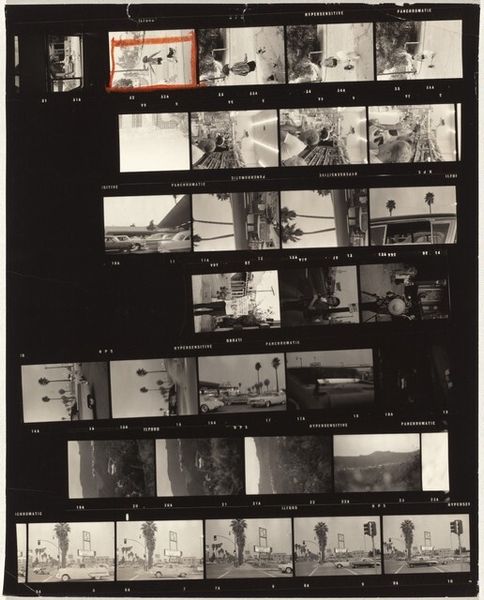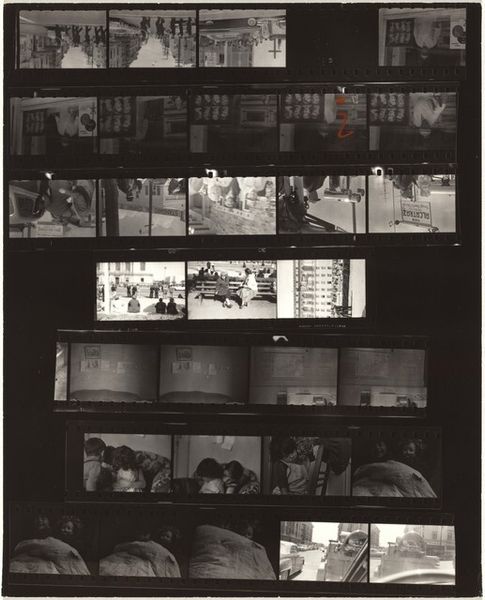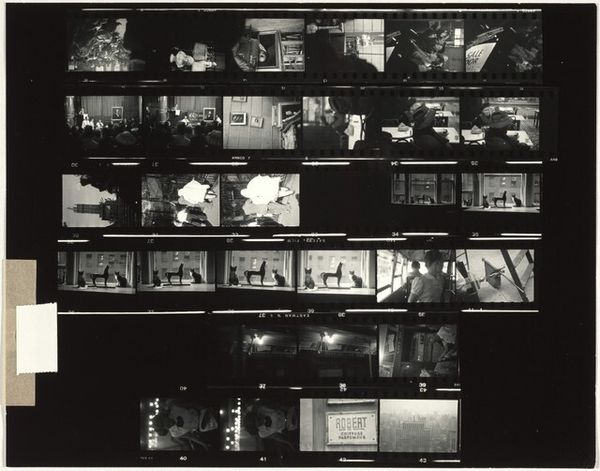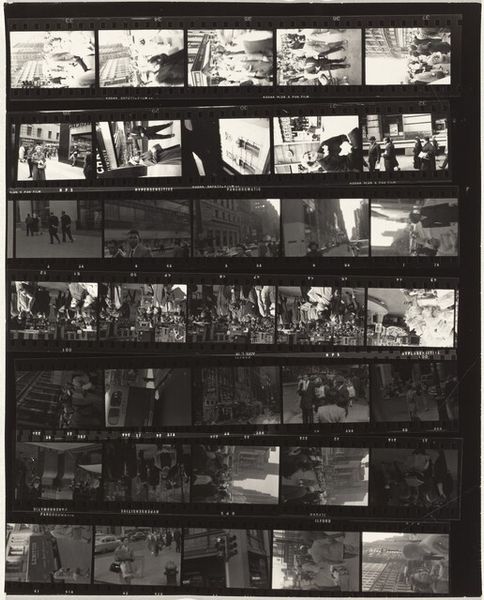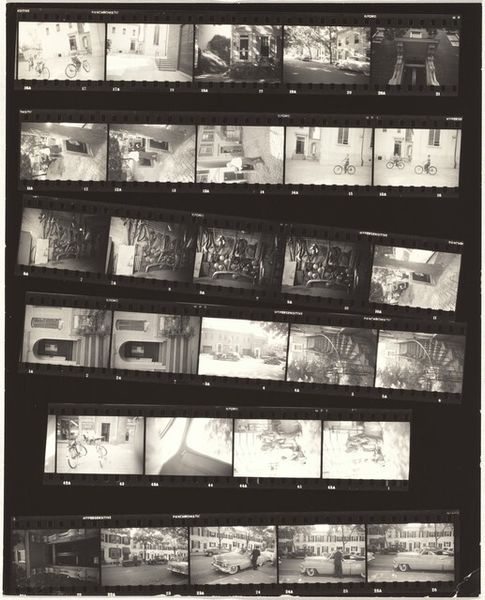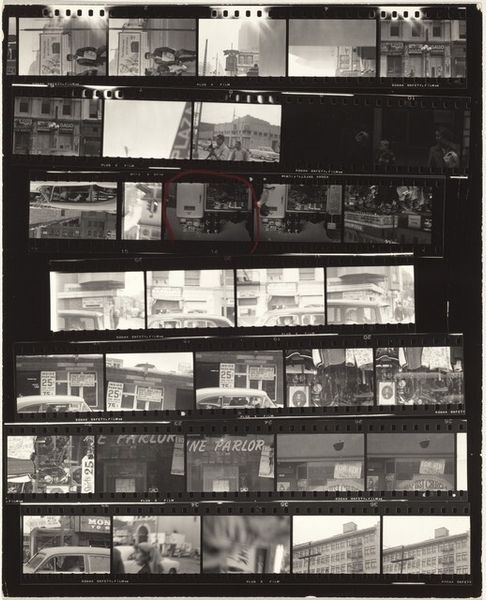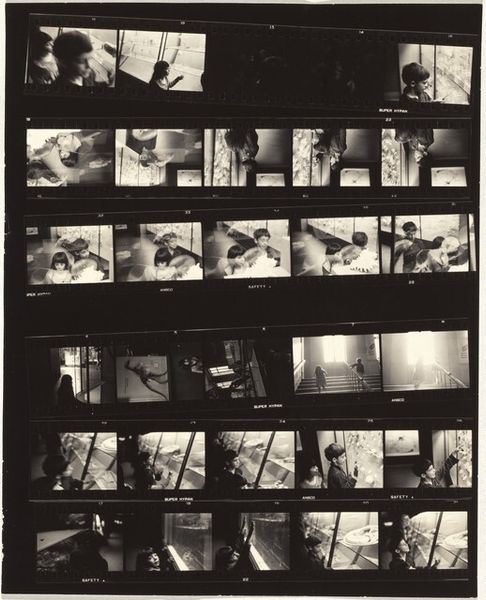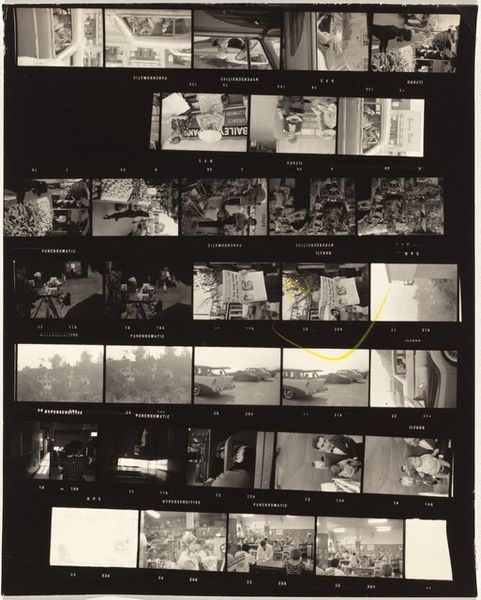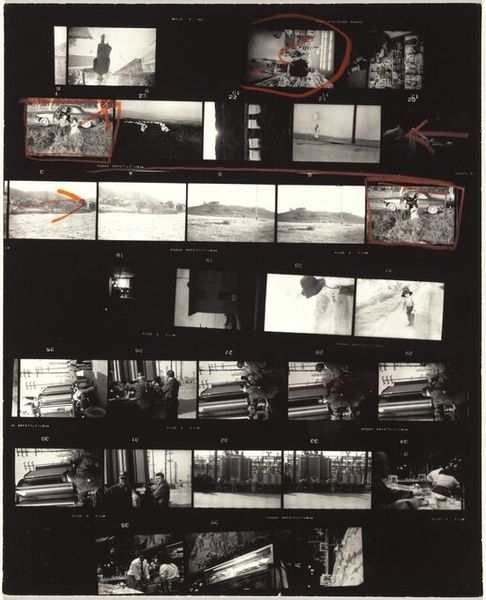
photography
#
abstract-expressionism
#
dark object
#
dark design
#
dark hue
#
street-photography
#
photography
#
dark-toned
#
dark colour palette
#
dark shape
#
black object
#
dark mood
#
dark colour palate
#
dark
Dimensions: overall: 25.3 x 20.5 cm (9 15/16 x 8 1/16 in.)
Copyright: National Gallery of Art: CC0 1.0
Curator: Robert Frank's "Guggenheim 427--Los Angeles," taken between 1955 and 1956, presents a fascinating, albeit murky, contact sheet. Editor: It’s a contact sheet steeped in shadow; a fragmented, dark journey. The high contrast really accentuates the granular quality. The dark tones dominate everything. Curator: Indeed. Frank’s work often captures a sense of alienation within American society. The images here suggest themes of transit, with frames featuring interiors, storefronts, and automobiles. There's a sense of searching for something in this rapid succession of scenes. Editor: I'm particularly drawn to the play of light and shadow, how the composition is constructed almost as a series of tonal blocks. The way the frames intersect creates a complex visual rhythm. Curator: I think this speaks to Frank’s broader commentary on consumer culture, and the sometimes oppressive environments it fostered in urban spaces. Look at how commercial imagery and quotidian moments sit side by side, with a distinct lack of clear hierarchy. Editor: From a purely compositional standpoint, it is compelling how the individual frames have unique abstract qualities. This dark object floats in a sequence that becomes its own object in a way. Each photograph contains separate geometrical structures which become unified on the full sheet of moments in time. Curator: These weren't intended as singular iconic photos, but as a sequence which suggests motion, experience, and the complexity of seeing. His aim was clearly to engage a critical viewership around the cultural realities of 1950s America. Editor: True, this single sheet of photos creates a very real, lived feeling; all of this despite its murky tones, Frank uses the contrast and tonal shifts as a vehicle. A truly interesting artwork. Curator: Agreed, there's much to consider when contemplating this piece – the role of street photography, artistic documentation, and critical engagement with the cultural landscape. Editor: I have new thoughts about the abstract components when viewing this sheet and how important they are when studying art from this perspective.
Comments
No comments
Be the first to comment and join the conversation on the ultimate creative platform.
